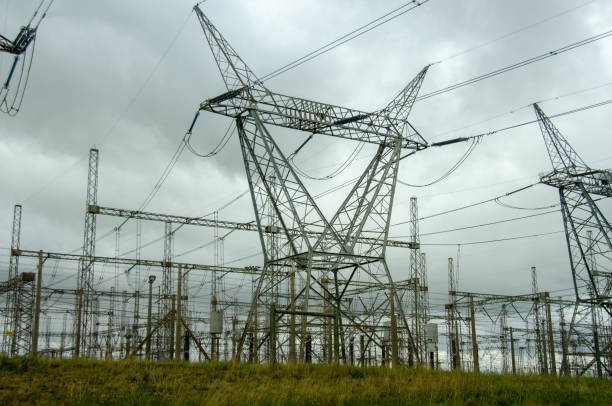West Coast:- Eskom, South Africa’s once-mighty power utility, is facing an unprecedented crisis as electricity demand continues to decline.
According to the latest report from the Council for Scientific and Industrial Research (CSIR), households and businesses are reducing their dependence on Eskom by shifting to alternative energy sources or consuming less electricity overall.
The Downward Trend in Electricity Demand
The CSIR’s annual report on power generation statistics, presented on 17 March 2025, revealed a consistent downward trend in peak electricity demand over the past decade. This shift is particularly concerning for Eskom, which relies on high electricity consumption to remain financially viable.
South Africa’s economy was historically driven by energy-intensive industries such as mining, smelting, and heavy manufacturing. For years, Eskom’s cheap and abundant electricity provided these sectors with a global competitive edge. However, the landscape has changed significantly over the past 20 years.
Changing Economic Structure
The South African economy has gradually transitioned toward service-oriented industries such as banking, insurance, and telecommunications. These sectors require far less electricity than traditional heavy industry, reducing the overall demand for Eskom’s power supply.
Adding to Eskom’s woes, renewable energy projects are rapidly coming online, providing an alternative source of electricity. In 2024, electricity production increased due to private renewable energy initiatives, yet overall demand dropped by 3% compared to 2023.
The Impact of Rising Electricity Costs
One of the biggest factors contributing to declining electricity consumption is the soaring cost of power. The CSIR’s report highlighted that electricity prices have increased by an annual average of 11% over the past decade—far outpacing general inflation, which has averaged around 5% per year. As a result, households and businesses have actively sought ways to cut back on their energy usage to save money.
This trend is a significant problem for Eskom, which is already burdened by a massive debt load and operational inefficiencies. If the downward trend continues, the utility could face severe financial instability, forcing the government to step in with further bailouts—an option that is becoming increasingly unpopular among South Africans.
The Ripple Effect on the Economy
The decline in Eskom’s influence could have far-reaching economic consequences. While a shift toward less energy-intensive industries may seem like a sign of modernization, it also threatens jobs in sectors that historically relied on stable electricity supply.
If mining and heavy manufacturing continue to shrink, South Africa could see increased unemployment, especially among blue-collar workers. Meanwhile, the high cost of electricity still affects businesses across all sectors, reducing their global competitiveness.
Additionally, unreliable power supply and load shedding remain significant concerns, discouraging foreign investment and limiting economic growth. While alternative energy solutions are on the rise, South Africa’s transition away from Eskom’s monopoly must be managed carefully to prevent economic disruption.
Is the Government Doing Enough?
Many South Africans are questioning the government’s role in addressing Eskom’s decline. President Cyril Ramaphosa has repeatedly expressed concern about the country’s energy crisis, but critics argue that little concrete action has been taken to ensure a sustainable transition.
As South Africa moves forward, tough decisions must be made about Eskom’s future. Will the utility be restructured, privatized, or allowed to fade into irrelevance? One thing is clear—unless major reforms are introduced, Eskom’s decline could spell trouble for the nation’s economic stability.
CCN News will continue to monitor developments on this story.


